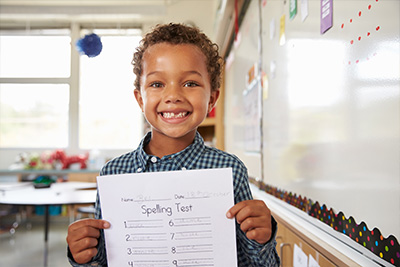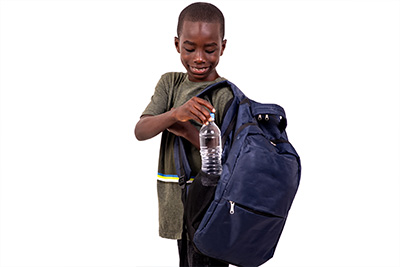Classroom Behavior Management (Part 2, Elementary): Developing a Behavior Management Plan
Assessment
Take some time now to respond to the items below. Please note that the IRIS Center does not collect your Assessment responses. If this is a course assignment, you should turn them in to your professor using whatever method he or she requires. If you have difficulty responding, go back and review the Perspectives & Resources pages in this module.
- At the beginning of the school year, you created a classroom behavior management plan, and for the most part it has been working well. Lately, however, you’ve noticed a number of students eating candy and chewing gum during class. List two changes that you could make to your behavior plan to address this increasingly problematic behavior.
- Most teachers create procedures for routine activities (e.g., walking in the hallway, going to the restroom). Just as important are procedures for less frequent activities (e.g., attending an assembly, responding to a fire or tornado drill). Select a less-frequent activity and write out a new procedure to address it.
- You developed a step-by-step crisis behavior plan to address serious problem behaviors that might arise in the classroom. Now consider what you would do if a behavior crisis occurred while your students were (a) in an assembly or (b) on the playground. Create a separate crisis plan to address one of these situations.
- You created an action plan to effectively implement your behavior management plan. Midway through the school year, though, two new students are assigned to your class.
- How would you introduce these students to your classroom behavior management plan?
- How would you introduce their parents to the classroom behavior management plan?
- To complete the following activity, you will need to revisit (though not change) your classroom behavior management plan. Imagine you are teaching a 50-minute class and your students engage in the behaviors listed in the table below during that one period. Note: We recommend that you read through all of the behaviors once before beginning the activity.
- In the table below, indicate how you would address each of these behaviors. First check whether you would deliver a positive or negative consequence, then write down the consequence you would deliver.
- Let’s assume that you have implemented a comprehensive behavior management plan and these behavioral issues continued to occur. Which parts of your plan should you consider revising?
Student Behavior

Before class begins, Emily follows the procedure for sharpening her pencil correctly.
Should this receive a positive or negative consequence?


Your consequence

Caleb hasn’t turned in his homework for two days, claiming that his pet goldfish ate it. Today, however, he turns in his completed assignment on time.



Drew trips Nicole as she walks to the front of the room, sending her glasses flying across the room.



Nicole calmly retrieves her glasses and writes the correct answer to her problem on the board.



Jonathan interrupts your instruction to ask to play an action game on the computer during computer time. He says he brought it with him to class, just in case.



Jason gets up to get a drink of water without permission in the middle of your instruction. He tells you that unlimited water privileges are in his IEP, but you’re pretty certain they’re not.



Jonathan asks to play a football game on the computer during computer time. He says there’s lots of math in it.



Kristen and Kaarima have recently been separated because they talk during instruction. Kristen throws a ball of paper containing a note across the room to Kaarima.



Megan has a learning disability and is extremely shy. Since the beginning of the year, she has steadfastly refused to go to the board to answer questions. Today, however, she goes to the board and writes out the correct answer to her problem.



Jonathan yells out again, wanting to know whether he can play a boxing game on the computer during his computer time. He says he’ll even let you play, too.



After this rather chaotic lesson, your students actually work on their assignment quietly until class time is over.

